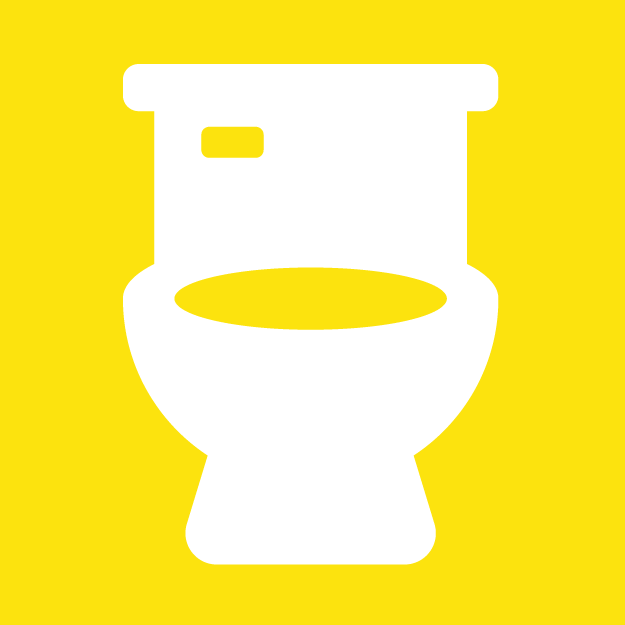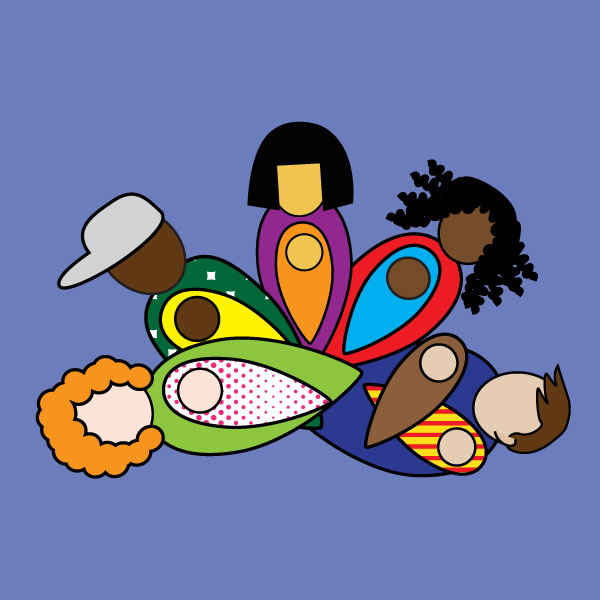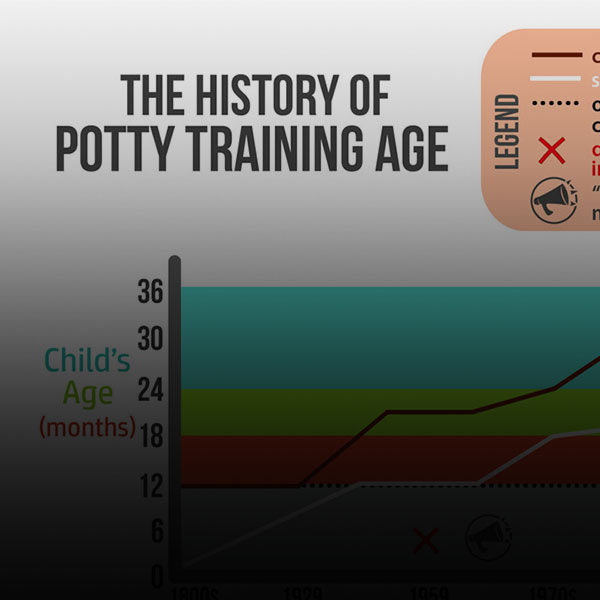Potty Learning

Did you know that 92% of American children were potty trained between the ages of 12 and 18 months before the invention of disposable diapers? Now the average age is now 3 years and climbing! There is no such thing as "ready" - if a child has no developmental delays, then it is 100% about the parent being ready, and having the support and cooperation of surrounding adults. So when YOU are ready, we're here for you!
Articles & Resources
History of Potty Learning
Mammals are born with an instinct not to soil their nest, or caregiver. The problem is that because we immediately diaper them, we don’t have the opportunity to see the actual order of the process - Fuss, then pee. We only think it’s pee and then fuss. We train babies TO use diapers by ignoring their signals. We ignore their signals because most of us have never been told it’s possible. If you were to observe a newborn baby with no diaper on, you would see that they actually start to fuss BEFORE they pee, and we all have seen them make the poopy face before pooping!
Many places around the world don't use diapers at all; they just potty their babies! Third world countries, tribal communities, and all of our ancestors - they had to have a method of keeping their children clean. You can even find mention in OLD parenting books of "airing" the baby several times a day by taking off their coverings, holding them over the ground, and then cleaning them up after they had peed or pooped.
The average age world wide for potty independence is ONE YEAR OLD. This is includes places where clothing is optional (or non-existent!) for small children, so there are not as many obstacles for them as children here. But the point is that children ARE capable at much earlier ages than man people now think. Children didn’t change - our environment did.
So, what changed?
Disposable diapers are released.
Disposable diapers were intended to make a mother's job easier. No more cleaning diapers - you just throw away the mess!
However, these early diapers didn't really catch on. They were stiff, uncomfortable for the babies, and families suddenly had a lot more trash to deal with as a result of using them. This presented a problem for the diaper companies - how to sell their product when it wasn't very good?
in 1962 Dr. T Berry Brazleton released his "study" in which he declared that parents must wait until their child is "ready" to begin to potty train. He claimed that to do so before this magical stage could harm them. He put forth in his paper that around 2 years old was a good time to potty train. Prior to this, 92% of American children were potty trained between 12 and 18 months...
It's worth mentioning that Dr. Brazleton served for many years on the board of Proctor & Gamble, one of the largest diaper manufacturers to this day...
In reality, the one who has to be “ready” is the parent. Our culture has made it desirable to be busy, busy, BUSY, so much so that it is hard to slow down for a few days and take care of certain things. But if we DO take a few days, slow down, and connect with our child, they can be free of diapers much earlier. They will be cleaner, healthier, and more in tune with their body. PLEASE, do NOT put diapers or pants on backwards to get the child to leave them alone and forget about them - this teaches kids to ignore bodily sensations even further, and does NOT help with anything. If the child is taking his or her diaper off, it is time to start potty teaching!
When you are ready to take on potty training, the top keys to success are as follows:
- Be Consistent - sending mixed signals won’t help anyone
- Do NOT go back to diapers. Take them out of the picture, out of the house, throw them away - whatever is necessary to make sure that you don’t go back. It is very confusing for a child if you go back to diapers. “Don’t pee in your pants anymore….just kidding, it’s ok again…wait, no, don’t do it!”
- Do NOT punish - they are learning a new skill, and they need teaching and support to master it, not punishment
- Be patient, and calm. If you are anxious, they will feel anxious. Call in reinforcements if you need help staying lighthearted.
Ready to get started?
At a Glance
Potty Learning Coaches


